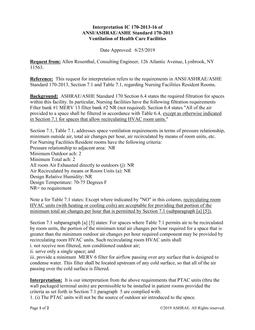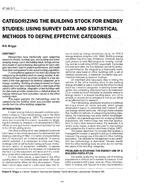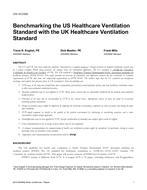Following the oil embargo energy crises in the 1970’s, chilled water plant operators used a “strainer cycle” to reduce chiller energy use when the cooling tower could provide adequate chilled water temperature to meet load. This approach was refined over the years with the introduction of plate and frame heat exchangers that avoided contaminating the chilled water system with water from the cooling tower. Analysis of a generic fluid-cooler arrangement that precools chilled water return has shown that a water economizer is generally cost effective based on the capacity of chilled water served systems that do not have airside economizers.
Based on this cost effectiveness, proposed Addendum DU to ANSI/ASHRAE/IESNA Standard 90.1-2010 would extend the requirement for an economizer to chilled water systems that were formerly exempt due to being below the individual fan system size threshold. This proposal will provide cost effective savings for radiant cooling systems, chilled beams, and fan coil units when the total capacity without air economizers is large enough. This paper reviews some approaches to achieving the savings, cost effectiveness analysis, provisions for colder climates where freeze protection is a concern, and alternate system configurations.
Citation: ASHRAE Papers CD: 2014 ASHRAE Winter Conference, New York, NY
Product Details
- Published:
- 2014
- Number of Pages:
- 8
- File Size:
- 1 file , 2.2 MB
- Product Code(s):
- D-NY-14-C045


